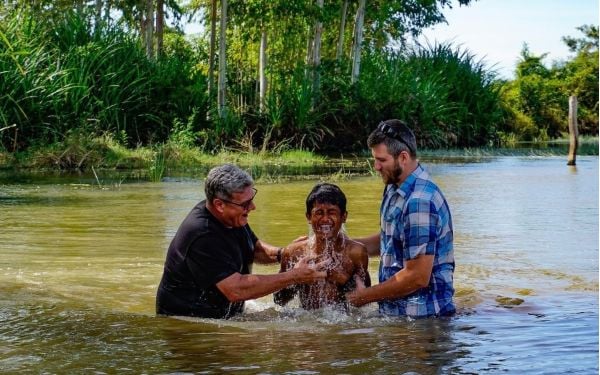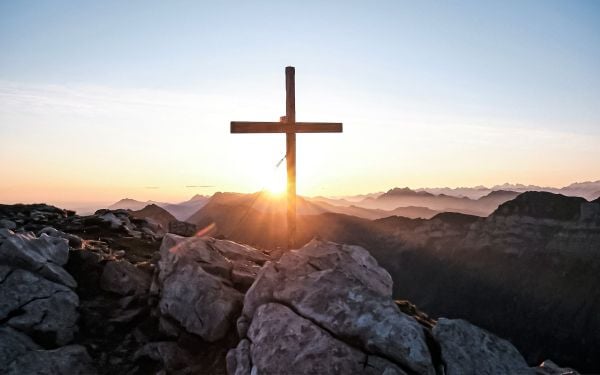3 Ways God Uses Disaster for His Glory
It’s a huge, eternal, proven fact that God uses disaster to bring people to Him.
There are more stories in the Bible of people coming to the Lord through the disaster than through success. In the Old Testament, we see this in the Israelites. In Acts, it’s especially evident in our model for how we are to live today: the Early Church.
The First Church didn’t grow so quickly because it was seeker-friendly or had an engaging worship experience. It spread through persecution. When Stephen, the first martyr, was killed for his faith, people panicked and fled. They scattered to different areas of the Roman Empire and beyond, taking the Gospel with them.
The first church spread because of persecution, and that’s why the church grew more quickly than any other religion.
God used disaster to bring people to Him.
I’ve seen this in my life time and time again. When the tornado tore through Joplin, Missouri, in 2011, I spent a week there serving with response teams, sharing God’s love with the broken and hurting. That week ignited a passion in me for relief work, because I saw firsthand how powerfully God works in times of suffering—and how it brings people to Him. After the Race, I was in the Fellowship program at Adventures when the Syrian Refugee Crisis hit a climax. I went over there with a two week team and stayed for three months, coordinating relief efforts with short term teams and World Race squads.

While in Greece, I saw firsthand the power of a disaster response trip, how it takes people out of their comfort zones and puts them in direct contact with people they would never otherwise meet—people who are completely broken, helpless, and in desperate situations.
The trips might only be 1-2 weeks, but what God does in that time is radical.
Here are 3 Ways God uses disaster to bring people to Him:
1. Disaster Relief reaches people for Christ that we might not normally be able to meet.
There were many situations in Greece where the Racers and short term volunteers were the first Americans—and the first Christians—these Muslim refugees had ever met. It was an opportunity to share Christ with people who have never heard of Him outside of propaganda and media—people from countries we have been unable to enter an organization.
The same happened in Baton Rouge in September. One of our teams served at a woman’s house who really needed to see the love of Jesus in action. They were from different socioeconomic classes, and honestly, would probably never have crossed paths otherwise. But God used this disaster to show this homeowner how great His love was for her.
2. Disaster Relief showcases God’s power in a way normal life does not.
It’s extremely difficult to prepare for a disaster relief trip. You don’t know exactly what supplies you need to bring. If you have some sort of schedule, it will be thrown out the window. Nothing is structured. You’re entering a time in people’s lives where they are at their most desperate. You’ll see incredible pain, and probably situations of need you can’t predict.
When we’re put in places that we can’t control or can’t fix with our human efforts, that’s when God’s power is most evident.
We saw an example of this in January 2016, when a short term team in Greece had only seven trays of food—and needed to feed 400 people. God multiplied the food. Everyone was fed, and there ended up being three trays leftover!
3. Disaster Relief connects the Church in a new way.
Responding to crisis and suffering brings people together who never would have been brought together.
Relief teams literally bridge all of the Adventures departments, taking people of all ages and from all walks of life, and bringing them together. Anyone can do disaster relief. Last September we sent two teams to Baton Rouge to help with the flood response. On one of the teams was a 19-year-old Gap Year alum and a 55-year-old Catholic from New England who had never been on an Adventures team. They were best friends by the end of the trip, and they probably would never have met otherwise.
We know we aren’t the Red Cross and we aren’t specialized. We don’t want to be. We don’t want to re-invent the wheel. What Adventures brings to the table is our people: short term individuals, Racers, and alumni, people who have been broken, and have experience around the world and on mission trips. We are broken, willing, humble, eager hands and feet who just want to love people—and we are willing to step in wherever we are needed.

There’s nothing easy about disaster response. Being a part of this ministry has challenged my faith in ways I never expected, but it’s also given me a passion to bring people into that space. Serving in disaster relief is seeing the Kingdom of God at work here on earth. After all, Jesus said, “Blessed are the poor in spirit, for theirs’ is the Kingdom of heaven” (Matthew 5:3).
Whether you are currently in a hard season or not, I challenge you to look at the difficult times differently, whether they’re physical, financial, relational, spiritual, etc. How have you seen God’s power and love for you? Can you see how He has used some of the darkest times of your life for His glory?
I challenge you to view the hardest times of your life as opportunities to see God’s glory—and when someone in your life is hurting, to ask God to use you to show His love during their personal disaster.
May we be the hands and feet of Jesus in our world, our country, our communities, and in each others’ lives.
Reid Mason is an alum of World Race 2014 D squad, and has worked in disaster relief in Joplin, Greece, and Baton Rouge.
Make a Difference Today
-
Giving: Login
-
Toll Free: 800-881-2461
-
Local: 770-983-1060



